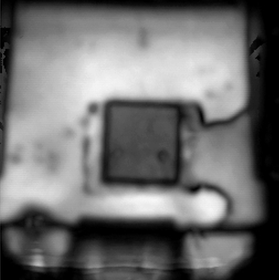We will introduce a case study that was able to identify strains mixed in environmental DNA!
MLST (Multi-locus sequencing typing) analysis is a method for typing bacteria by patterning mutations in multiple gene regions (usually more than seven). In this analysis case (in-house data), samples were prepared assuming the identification of isolates' genomes and environmental bacteria (samples mixed with environmental DNA and the genomes of isolated strains), and typing was conducted. The prepared strains included Gram-positive and Gram-negative bacteria, and genome sequencing and typing were performed on these samples using Miseq. As a result, this method allowed for the identification of strains mixed with environmental DNA. [Case Overview] - Samples were prepared assuming the identification of isolates' genomes and environmental bacteria, and typing was conducted. - The prepared strains were Bacillus subtilis subsp. subtilis str. 168 (Gram-positive) and Pseudomonas protegens Pf-5 (Gram-negative). - Genome sequencing and typing were performed on these samples using Miseq. *For more details, please refer to the PDF document or feel free to contact us.*
Inquire About This Product
basic information
【Workflow】 ■Sample Sequence Reads ■Quality Filtering ■Estimation of Closely Related Species Using K-mer Distribution ■Mapping to Closely Related Species ■Identification of Gene Regions for MLST Analysis ■MLST Analysis Using MLST Database ■Creation of K-mer Phylogenetic Tree SNP Phylogenetic Tree *Optional Analysis *For more details, please refer to the PDF document or feel free to contact us.
Price range
Delivery Time
Applications/Examples of results
For more details, please refer to the PDF document or feel free to contact us.
catalog(3)
Download All CatalogsCompany information
In recent years, advancements in molecular biology have led to remarkable progress in research such as the determination of the complete genome sequences of organisms and subsequent gene function analysis. Along with these technological advancements, molecular biological techniques such as nucleotide sequence analysis, real-time PCR, and DNA chips have become widely utilized in the field of food analysis. Since its establishment in 2001, Fasmak Co., Ltd. has been developing technologies for the "Japanese Standard Analysis Method" for genetically modified foods and food allergens in collaboration with related agencies of the Ministry of Agriculture, Forestry and Fisheries and the Ministry of Health, Labour and Welfare. The developed testing technologies are provided not only in Japan but also in the United States, China, and other countries. Additionally, Fasmak has been actively engaged in international standardization activities for "food inspection methods using molecular biological techniques" since its establishment, and its technical capabilities are internationally recognized. Furthermore, in partnership with Eurofins Scientific, one of the world's largest testing companies, Fasmak is advancing the introduction of the high technical capabilities possessed by the Eurofins Group. Moving forward, Fasmak will continue to provide world-class new testing technologies to everyone.



![[Case Study Collection - Free Download] Next-Generation Sequencing Analysis](https://image.mono.ipros.com/public/catalog/image/01/10e/615576/IPROS36810353806721836024.jpeg?w=120&h=170)


![[Next-Generation Sequencing Analysis Case Study] Analysis of Microbiota *Case study collection available.](https://image.mono.ipros.com/public/product/image/724/2000603350/IPROS71770389520851398582.png?w=280&h=280)
![[Next-Generation Sequencing Analysis Case] Draft Analysis of Microbial Genomes](https://image.mono.ipros.com/public/product/image/afc/2000603358/IPROS65892615538400178110.png?w=280&h=280)

![[Next-Generation Sequencing Analysis Case Study] Analysis of Wildlife Diets](https://image.mono.ipros.com/public/product/image/da1/2000603352/IPROS37659128471167472894.png?w=280&h=280)
![[Next-Generation Sequencing Analysis Case] 12S Amplicon Analysis](https://image.mono.ipros.com/public/product/image/151/2000603367/IPROS16731533265082123741.png?w=280&h=280)



![[Analysis Case Study] Observation of Adhesion State Through Metal Plates Using Ultrasonic Microscopy](https://image.mono.ipros.com/public/product/image/367300/IPROS2705829217984245675.png?w=280&h=280)
